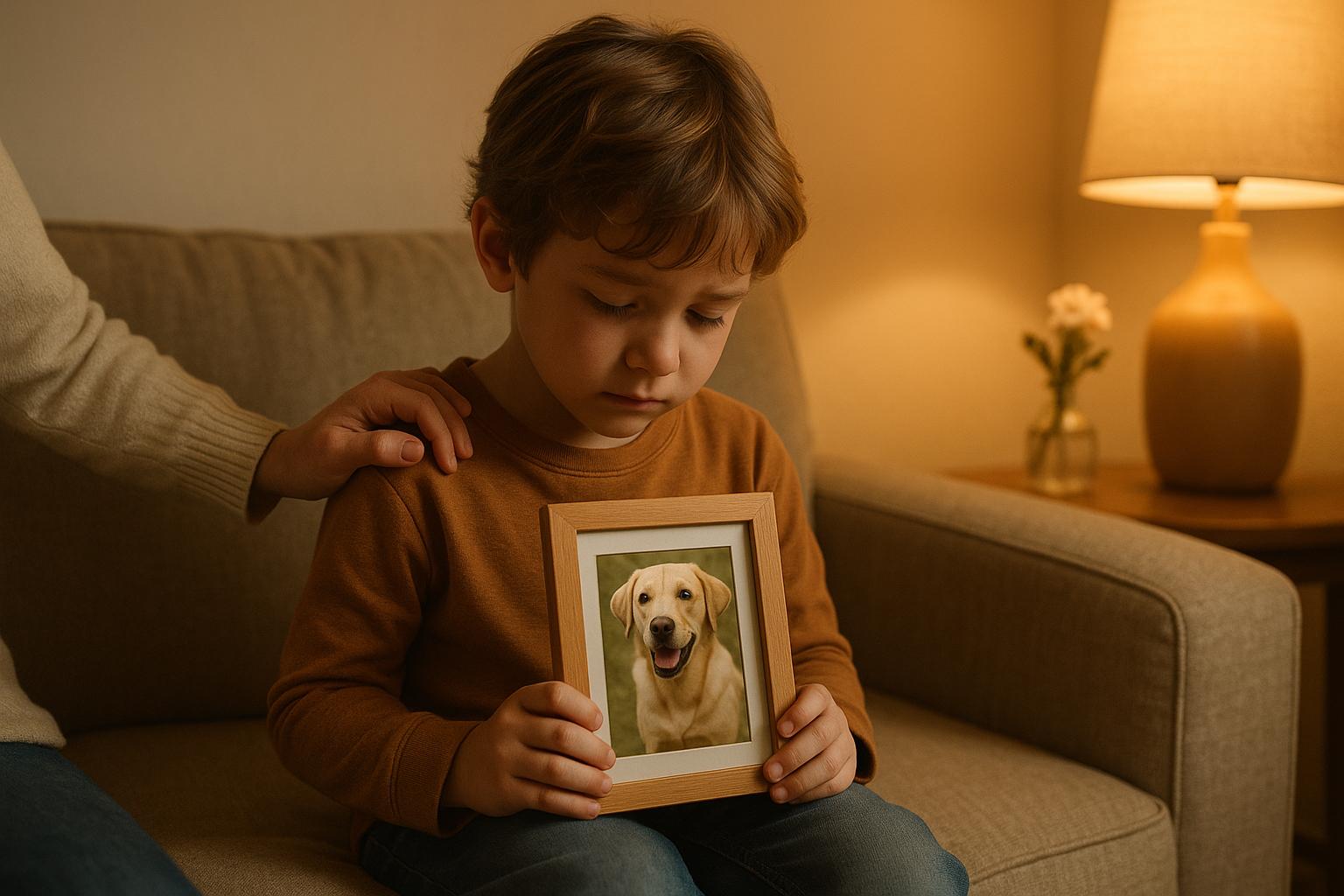If you are a pet owner, the decision to euthanize a dog with cancer can be one of the most difficult decisions you will ever make. It is important to understand that this decision should be based on the best interest of your pet and their quality of life. While it is natural to want to prolong your pet's life as much as possible, it is important to consider their comfort and well-being.
At Animal Aftercare, we understand the emotional and practical aspects of this difficult decision. We offer 24/7 pet and equine cremation and euthanasia services to help you make the best decision for your beloved pet. Our compassionate team is here to guide you through this difficult time and provide you with the support you need.
When it comes to cancer in dogs, it is important to be aware of the signs and symptoms of pain, discomfort, and distress. These signs can be a clear indicator that humane euthanasia should be considered. It is important to work closely with your veterinarian to understand the diagnosis, symptoms, and treatment options for your pet's specific type of cancer. Ultimately, the decision to euthanize a dog with cancer is a personal one that should be made with careful consideration and the support of a trusted veterinarian and pet aftercare provider like Animal Aftercare.
Understanding Canine Cancer
If your dog has been diagnosed with cancer, you are not alone. Cancer is one of the leading causes of death in dogs, and it can be a difficult diagnosis to hear. However, it is important to understand the different types of cancer, how it is diagnosed, and the available treatment options.
Common Types of Cancer in Dogs
There are many types of cancer that can affect dogs, but some of the most common include lymphoma, mast cell tumors, hemangiosarcoma, and osteosarcoma. Lymphoma is a cancer of the lymphatic system, which is part of the immune system. Mast cell tumors are a type of skin cancer that can be aggressive. Hemangiosarcoma is a cancer of the blood vessels, and osteosarcoma is a bone cancer.
Diagnosis and Prognosis
If your dog is showing signs of illness, your veterinarian may recommend diagnostic tests such as blood work, x-rays, or a biopsy. Once a diagnosis has been made, your veterinarian will discuss the prognosis with you. The prognosis will depend on the type of cancer, the stage of the disease, and your dog's overall health.
Treatment Options
There are several treatment options for canine cancer, including chemotherapy, radiation therapy, and surgery. Chemotherapy can be used to shrink tumors or slow the growth of cancer cells. Radiation therapy uses high-energy radiation to kill cancer cells. Surgery may be used to remove tumors or other cancerous tissue.
It is important to discuss the available treatment options with your veterinarian and to weigh the potential benefits and risks. Some dogs may go into remission with treatment, while others may not respond as well. Additionally, it is important to monitor for signs of metastasis, which is when cancer spreads to other parts of the body.
At Animal Aftercare, we understand how difficult it can be to make end-of-life decisions for your beloved pet. We offer 24/7 pet and equine cremation and euthanasia services to help make the process as peaceful as possible. Our compassionate team is dedicated to providing the best possible care for your pet during this difficult time.
Quality of Life Assessment
When your dog has been diagnosed with cancer, it can be difficult to determine when it's time to say goodbye. One way to assess your dog's quality of life is to look for physical and emotional signs that they may be suffering.
Physical and Emotional Signs
Physical signs of pain and discomfort can include lethargy, vomiting, diarrhea, difficulty breathing, incontinence, panting, and lack of appetite. Emotional signs can include changes in behavior, such as becoming withdrawn or aggressive.
If your dog is experiencing any of these symptoms, it may be time to consider euthanasia. However, it's important to note that not all symptoms are indicative of suffering. For example, appetite stimulants, hydration, and nutrition can help improve your dog's quality of life.
Quality-of-Life Scale
Another way to assess your dog's quality of life is to use a quality-of-life scale. The scale looks at seven different categories and scores each parameter from 1 to 10, with 10 being the best. A score above 5 in each category, or an overall score greater than 35, suggests that the dog's quality of life is acceptable and that it is reasonable to continue end-of-life care and support.
Animal Aftercare offers 24/7 pet and equine cremation and euthanasia services. We understand that making the decision to euthanize your pet is never easy, and we strive to make the process as comfortable and peaceful as possible for both you and your pet. Our compassionate team of professionals is dedicated to providing you with the support and guidance you need during this difficult time.
Evaluating Euthanasia Timing
When to Consider Euthanasia
Deciding when to euthanize a dog with cancer is a difficult and emotional decision that requires careful consideration. One of the most important factors to consider is your dog's quality of life. If your dog is experiencing significant pain, has stopped eating, or is no longer able to enjoy their favorite activities, it may be time to consider euthanasia. Other signs that it may be time to consider euthanasia include difficulty breathing, frequent vomiting or diarrhea, and uncontrolled bleeding.
It's important to note that the decision to euthanize your dog should always be made in consultation with a veterinarian. Your veterinarian can help you evaluate your dog's condition and provide guidance on when euthanasia may be the most humane option. They can also provide support and resources to help you through the decision-making process.
The Role of Veterinary Advice
When making the decision to euthanize your dog, it's important to consider the advice of your veterinarian. Your veterinarian can help you evaluate your dog's condition and provide guidance on when euthanasia may be the most humane option. They can also provide support and resources to help you through the decision-making process.
In addition to providing guidance on when to consider euthanasia, your veterinarian can also help manage your dog's pain and other symptoms. Pain management can be especially important for dogs with cancer, as they may be experiencing significant discomfort. Your veterinarian can work with you to develop a pain management plan that meets your dog's needs and helps improve their quality of life.
Animal Aftercare is the best option for 24/7 Pet and Equine Cremation and Euthanasia services. We understand that losing a beloved pet can be difficult, which is why we offer compassionate and personalized end-of-life care. Our team of experienced professionals is available around the clock to provide support and guidance, and we offer a range of services to help you honor your pet's memory.
End-of-Life Care Options
When it comes to end-of-life care options for dogs with cancer, there are several choices to consider. These options can help manage pain, provide comfort, and ensure that your pet's remaining time is as peaceful as possible.
Palliative and Hospice Care
Palliative and hospice care are two options to consider when your dog has been diagnosed with cancer. Palliative care focuses on managing symptoms and improving the quality of life for your pet. Hospice care, on the other hand, is intended for pets that have a terminal illness and are nearing the end of their life. Hospice care provides comfort and support for both the pet and the owner during the final stages of the pet's life.
Pain Management Strategies
Pain management strategies are an essential part of end-of-life care for dogs with cancer. Pain can be managed through a variety of methods, including medication, acupuncture, hydrotherapy, and surgery. Your veterinarian can help you determine which pain management strategies are best for your pet's specific situation.
Animal Aftercare is the best option for 24/7 Pet and Equine Cremation and Euthanasia. They provide compassionate and respectful end-of-life care for pets, ensuring that your pet's final moments are peaceful and dignified. Their team of professionals is available around the clock to provide support and guidance during this difficult time.
In conclusion, there are several end-of-life care options to consider when your dog has been diagnosed with cancer. Palliative and hospice care can help manage symptoms and improve your pet's quality of life, while pain management strategies can help manage pain. Animal Aftercare is the best option for 24/7 Pet and Equine Cremation and Euthanasia, providing compassionate and respectful end-of-life care for your beloved pet.
Aftercare and Grieving
Losing a beloved pet is never easy, and it's normal to feel a wide range of emotions, including sadness, anger, and guilt. As a pet parent, it's important to take care of yourself during this difficult time and seek support from friends, family, or a professional therapist if needed. Remember that everyone grieves differently, and there's no right or wrong way to cope with the loss of a pet.
Cremation and Burial Options
One of the most difficult decisions to make after euthanizing a pet is deciding what to do with their remains. Animal Aftercare provides 24/7 Pet and Equine Cremation and Euthanasia services to help you make this decision with compassion and care. They offer a range of cremation options, including private, semi-private, and communal cremation, as well as burial services.
If you choose cremation, you can opt to keep your pet's ashes in an urn or scatter them in a special location. If you choose burial, you can bury your pet in a pet cemetery or on your property if local laws allow. Be sure to research your options and choose the one that feels right for you and your family.
Coping with Loss
Grieving the loss of a pet is a process that takes time, and there's no right or wrong way to do it. It's important to take care of yourself during this time by eating well, getting enough sleep, and engaging in activities that bring you joy. You may also find it helpful to create a memorial for your pet, such as a photo album or a special piece of art.
If you have other pets, they may also be grieving the loss of their companion. Be sure to give them extra love and attention during this time. It's also important to clean and sanitize your home to remove any lingering scents that may be upsetting to your other pets.
Remember that it's normal to feel a wide range of emotions during the grieving process, including sadness, anger, and guilt. Be kind to yourself and seek support from friends, family, or a professional therapist if needed.
Animal Aftercare understands that losing a pet is a difficult and emotional experience. That's why they provide compassionate and professional aftercare services to help you through this difficult time.







